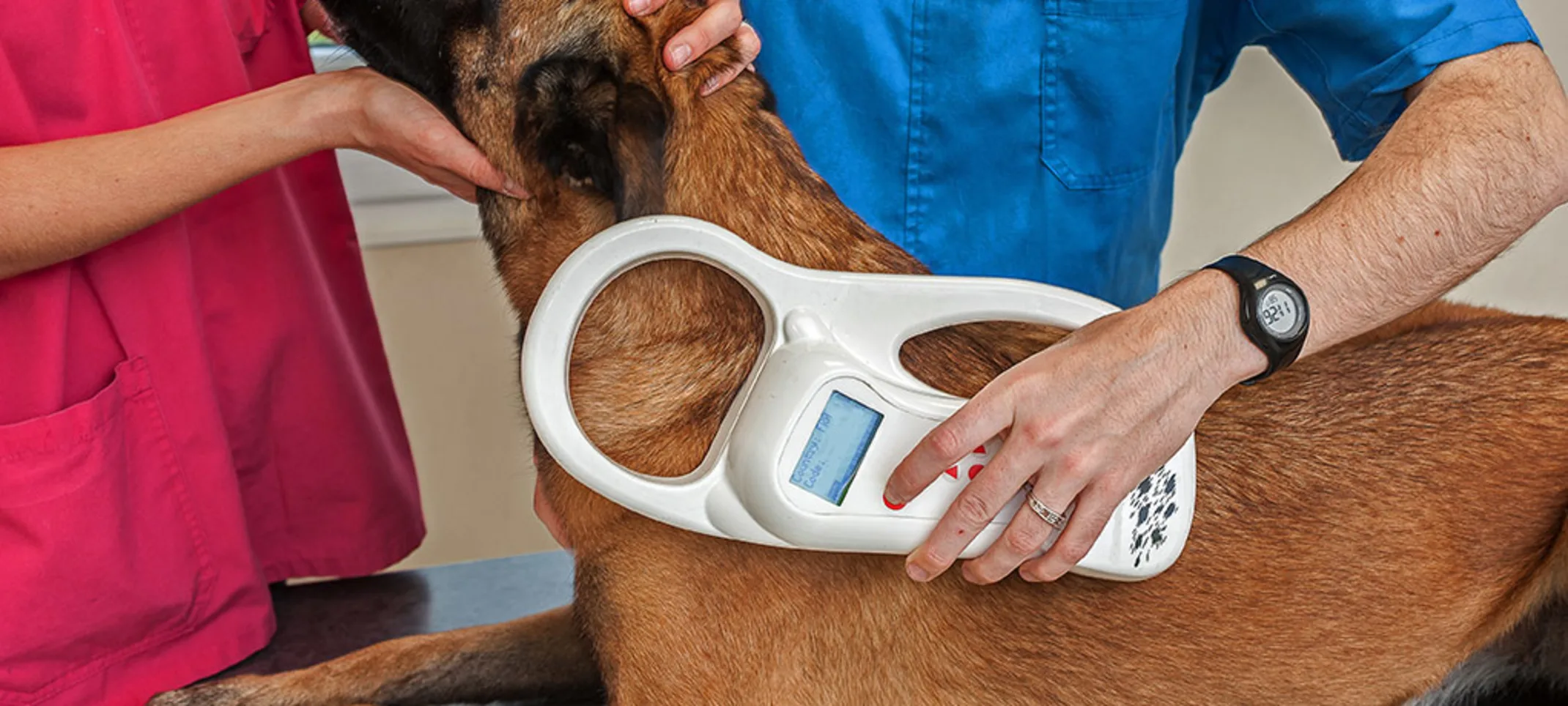Parkersburg Veterinary Hospital
Microchipping
Microchip identification is the most reliable way to reunite lost pets with their owners.

Overview
Microchip identification helps return an estimated 8,000 lost cats, dogs, and other animals to their homes every day. Pet ID chips are the most reliable way to reunite pets with their owners and provide peace of mind.
Why should I microchip my pet?
Microchip identification is the most reliable way to find lost pets and return them home with their owners. The procedure is safe, easy, and inexpensive.
When should I microchip my pet?
Some owners feel that their pet doesn't need identification because they stay indoors, but in our experience, these are the most likely to become lost when they accidentally get outside. As separation from your cat or dog can happen all too easily, permanent identification by microchipping is critical. Every pet should have microchip identification as the procedure can be done at any age.
How does microchipping work?
The small microchip (the size of a grain of rice) is injected under the skin between the shoulder blades of your pet in a relatively harmless veterinary procedure. The chip is permanent, lasting the whole life of the pet. Your information has to be registered with your bar code number so that you can be contacted if your pet ever becomes lost.
If a pet is found, all animal care facilities (shelters, hospitals, etc.) will scan the pet for a microchip using a special microchip reader that is simply waved over the skin. Once a microchip is found, a special hotline is called, and the lost pet is reported. The pet owner is then called immediately and given the contact information about where to pick up their pet.
Looking for your pet? Click here to access the Universal Pet Microchip Lookup.
